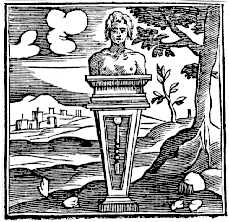2025 Terminalia Festival. Events
Sat 22nd Feb. 12:45. Leeds. Walk. Tim Waters: Hope Springs Eternal - The Hidden Healing and Holy Wells of Medieval Leeds
Whilst waiting for the walk to begin we chatted with people waiting for weddings to start. One told us a story of how his friend had been diagnosed with cancer, had limited time left and was renewing his vows.
We went to Cankerwell - a well that healed mouth ulcers and some say it healed cancer too. This was right by the LGI a place of modern healing, and next to a Tesco Express which sold Bonjella.
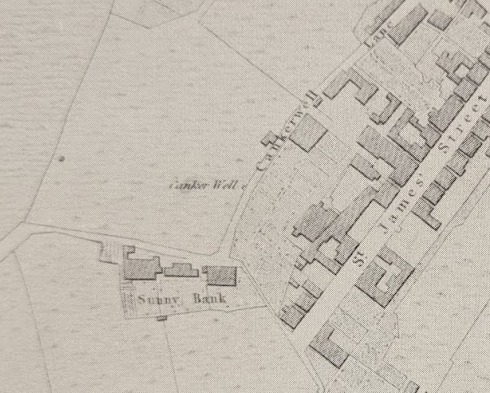
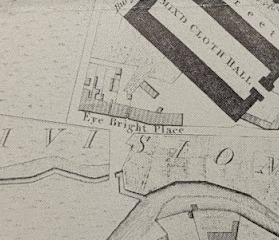


Next we went down Lady Well, a sweet soft tasting well right by Hope Street and Lady Lane named after Our Lady, and one of the oldest byways in Leeds. We looked for evidence of it's location and some graffiti gave us hints.
Then onto Quarry Hill and St. Peters Well. One of the best known wells, this morphed from holy well, to a healing well, to a turkish spa. the famous Thorseby went there to "take the waters" often. St Peters well was good for bones, so we found some calcium rich chocolate milk on the site.

Then onto Eyebright well - this well became the site of a public baths, had a row of houses named after it, and had a Springfield Place nearby. Now no traces remain. This well, or one very near it was labelled an ancient well and is on the traffic island where the taxis pickup outside the train station. Eyebright well was good for bad eyes.
Hope is the confident expecation of something happening in the future. A good example is the hope we have of healing when we go to the doctors and get a prescription, or more generally the hope we have that the Spring will follow the Winter.
We put our hope in modern medicine the same way people put their hope in places of healing. Ancient sacred wells in the landscape, changed from pagan, to Christian places of pilgrimage, to places of healing, to health spas, to places of recreation and places of hygene. Many of us still put our hope in health food and bottled spring water. Spa's are still popular. Most of the wells in Leeds became polluted and built over. There are still ancient wells in Yorkshire and around Leeds in less central locations.
You can read the full write up with more images on the Leeds Psychogeography Group page on Facebook: https://www.facebook.com/groups/106461459383547/posts/9999932726702988/
Join Tim on walk visiting the hidden holy and healing wells of Medieval Leeds and sites of modern healing.
For centuries, Leeds was a place of pilgrimage for people hopeful in seeking healing with the miraculous and curative waters of these wells.
The city even had sulphur baths well into the early years of the 20th Century.
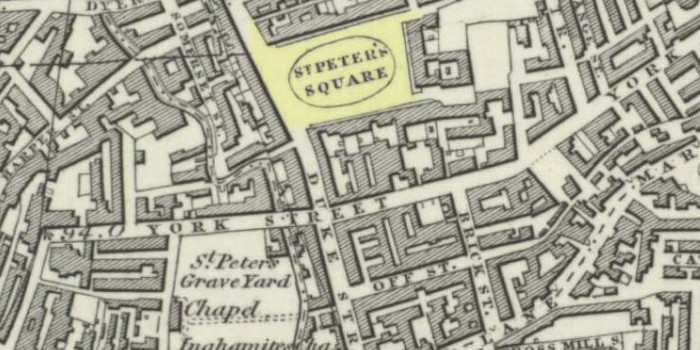
All the wells are now below ground but old maps can help us locate where theses "hope springs" are now.
We will start by a well known to cure diseases of the mouth, go to two wells near the train station (Eyebright well, for eye troubles), a well on Quarry Hill (rhuematism and rickets), look for Jacob's Well and try to find Lady Well, near to the ancient Lady Lane.
If we have time, energy and good weather we can go to Holbeck to find 2 wells - St. Helen's well and the Holbeck Sulphur Spa.
We will start by visiting a modern places of healing, the LGI Hospital, the Leeds Cathedral (A 2025 Pilgrimage of Hope Church) to see the holy water fount, and finish at a modern day place of hope, joy and occasional healing: the pub!
Meet on the steps of the Civic Hall, in Millennium Square, opposite the LGI Hospital at 12:45pm
Bring a bottle of you favourite beverage or water. At each well we will take a sip.
Water dowsers are welcome to join.
The walk will take at least 2 hours. There are slopes and may be steps.
Facebook event page: https://www.facebook.com/events/8516539528446703
Sun 23 Feb. 10am. London. Walk. Jessica Harrison: Walk The Thames A New Way
Walking is an art form. Memories are material.
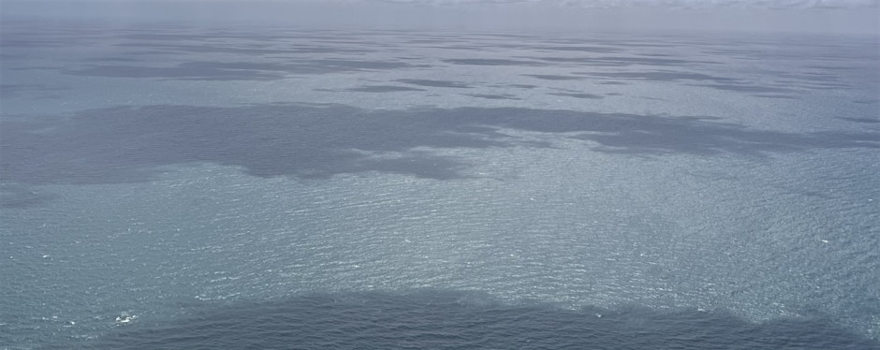
Many of us hold important memories about bodies of water, be it our first swim, working on ships or standing watching the happenings of sea life from the shore. The Thames is a place that is centred within many people's memories for hundreds of years. On the 23rd February as part of Terminalia we shall be using these memories as a map to guide us on a walk in London. We will be guided around the Thames and the surrounding city in its mid morning dress. The direction we take will be led by our memories and intuition. Examples may be words, places, sounds that peak the collective interest of the group. We will be remapping our minds, entering each other's memories and connections to not just the Thames but to bodies of water that are dear to us. We will be connecting to each other as strangers and connecting to the stories we hold using them as material to create an art piece that will only ever exist once.
We shall explore memory and how it affects movement, specifically walking. We shall play with speed and presence to our movement and observe how this connects us to place and how we engage with what is around us. Perhaps your memory relates to walking around the Thames or a body of water, but it does not have to.
We will have no intended destination. However our time together will end exactly an hour and a half after it begins. I would like us to have a 15 minute sharing circle, this will mean that our walk is a total of 1 hour and 15 minutes long.
Please wear warm clothing. Try to arrive with at least one positive or neutral memory that relates to the Thames or any other body of water. Bring any items that may support the communication of your memory if you wish. Make sure that you can get home afterwards, I imagine we will not be venturing too far away from our starting point and we will remain in central London when we finish.
Meeting point: 10am The Swan at Shakespeare's globe, London
To attend, please follow the link to Eventbrite: https://www.eventbrite.com/e/walking-is-an-art-form-memories-are-material-tickets-1238164416099
Sun 23 Feb. 10am(Boston) / 3pm(London). Walk. Marion Tu & Nathania Hartley: Hope in Motion
Artists Marion Tu and Nathania Hartley led a synchronised city walk in Boston (US) and London (UK).
With a group starting from Park Street in their respective cities they shared space: finding cross-continental commonalities whilst walking, listening and re-orienting themselves to their surroundings and each other.
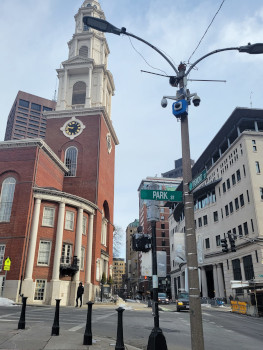
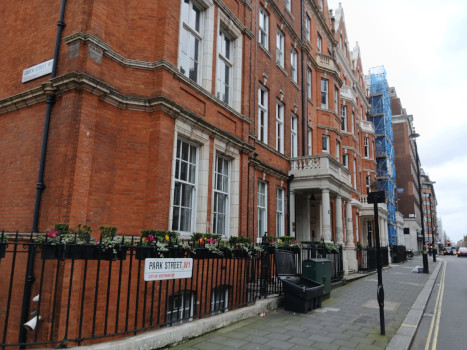
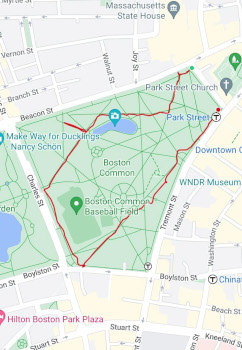
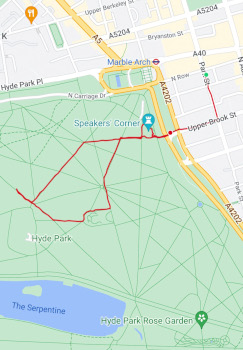
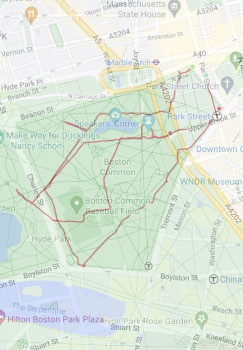
What possibilities emerge from the simple act of coming together and walking?
Join artists Marion Tu and Nathania Hartley for a synchronised city walk in Boston (US) and London (UK).
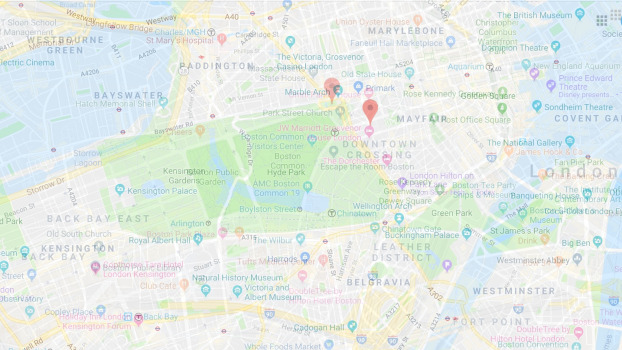
Boston: 10am - meet at MBTA Park Street station
London: 3pm - meet outside Marble Arch tube station (Oxford Street Exit - Southside)
More details and booking via Eventbrite:
For Boston, US walk - https://www.eventbrite.co.uk/e/hope-in-motion-boston-tickets-1226443087289
For London, UK walk - https://www.eventbrite.co.uk/e/hope-in-motion-london-tickets-1225517107659
Sun Feb 23. 10am-12pm. Bari. Italy. METROPOLITAN DERIVES & Artists for Rojava: Hope - Shores of the Mediterranean between tears and abysses
10:00 Greetings and welcome.
10:15 "The Lesson of Gaza for the Beautiful but Ungrateful Europe" by Palestinian journalist Dana Kamel Al Sheikh
10:30 Start of Walk - Scattering of flower petals into the sea
12:00 End.
Location: Perotti Park, Bari.
The expected duration is 2 hours.
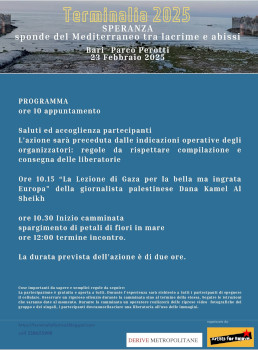 (click for full size)
(click for full size)
Participation is free and open to all. During the experience, all participants will be asked to turn off their cell phones. Observe strict silence during the walk until the end of the same. Follow the instructions that will be given at the time. During the walk, an operator will make photographic video recordings of the group and individuals, participants will have to release a release for the use of the images.
Further details: https://terminaliafestival.blogspot.com. Organized by METROPOLITAN and Artists for Rojova.
Sun 23 Feb. 11am. Danestone, Aberdeen, Scotland. Elaine Robson: "Peregrinations - Hope Circle / Scrap Circle"
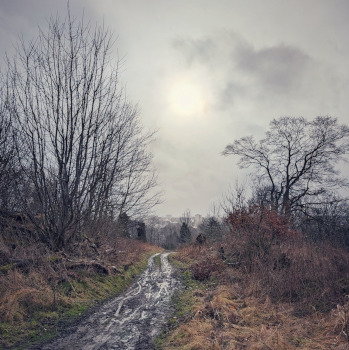
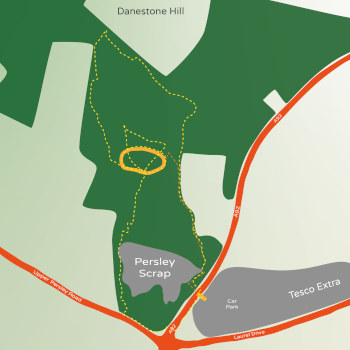

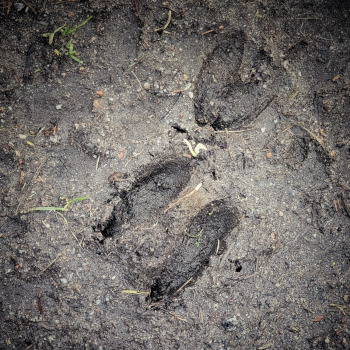
Join us as we take a slow group walk round a map-found oddity between
Persley and Danestone in Aberdeen. We will consider the changes the
weeks and seasons bring, the difference in experience between solitary
exploration and group investigations, and the geometry produced by and
imposed upon the landscape, as we make a hopeful ritual of walking the
man-made circuit among the growth and winter die-back obscuring the
site's paths.
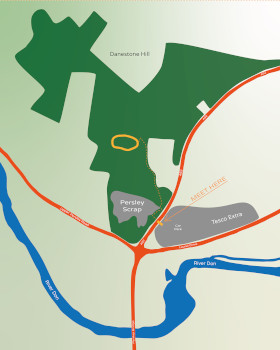
Meeting time - 11:00 GMT, Sunday 23rd February 2025
Meeting point - Danestone, Aberdeen, Scotland.
At the pedestrian path from the Tesco Extra car park to the A92 (The
Parkway). Opposite the entrance road to the scrap merchants RGS Hutchison &
Sons.
57.179910, -2.150402 || https://www.openstreetmap.org/way/83537790 || https://maps.app.goo.gl/DRj1Wfige1Xr2k59A
What to bring - sturdy shoes, warm clothes, a waterproof and a
camera/phone/notebook to record observations. Be prepared for some rain
and mud!
Duration - approximately 1.5 hours and we will have time for a review at
the local cafe after.
Cost - Free! Please donate to a local environmental charity if you enjoy
the walk.
For more information please see the webpage for full details
https://lostpathpress.co.uk/peregrinations/2025terminalia/
(The walk will be available as a self-guided version on this page shortly after the 23rd for those who can not make the event or wish to repeat it in their own time.)
Sun 23 Feb. 11am Aberystwyth, Wales. Roger Boyle: Terminalia Walk
February 23rd is Terminalia, the day when all good citizens walk the town's boundary.
There will be a celebratory walk of Aberystwyth Town Walls, starting on the prom pointy bit, just below the War Memorial.
The walk takes about 40 minutes. It is as yet undecided whether to go clockwise ot anticlockwise.
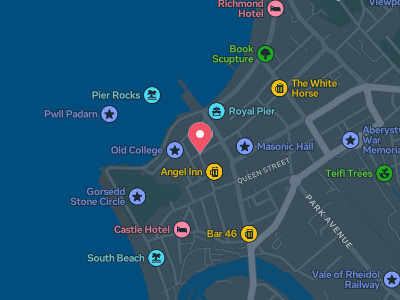
Sign up to the Facebook event. More details about the festival, and accounts of earlier observations of the festival, can be read: https://www.rogerdboyle.net/Terminalia/terminalia.html
Mail Roger at roger@rogerdboyle.net for further info.
Sun 23 Feb. 11am. Shetland. Steve Poole & Janette Kerr: Shetland Terminalia Walking Between Cairns
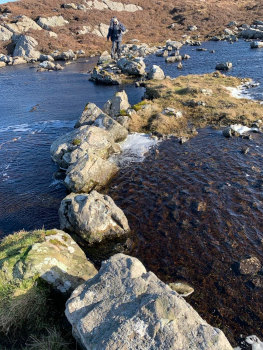
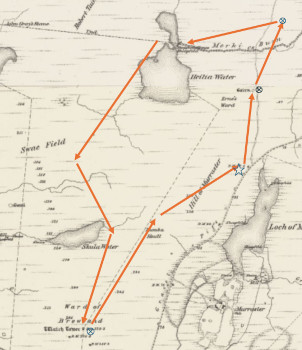
We try to imagine the landscape and Neolithic people living here - without tarmac roads, houses, and towering lines of telegraph poles. How did they 'see' the landscape? Resting my hands on worn lichen-covered stones, I think about Neolithic hands that lifted and placed them, the communities who lived, worked, and died here thousands of years ago. Impossible to know what they were thinking.
In the course of our walk a rainbow appears, an unscheduled but welcome reminder that hope is our theme for the day. We wonder abstractly what hope may have meant to people in 3000 BC. Did hope play any part in burying the dead? We guess there are certain hopes we all share as humans, whatever the place or century.

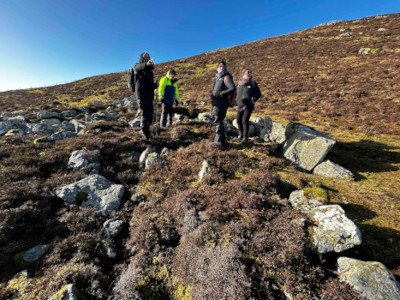
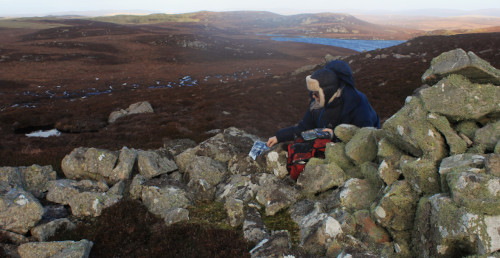
There's an important difference between 'knowing' a place through material and numerical methods of measurement and assessment, and 'knowing' a place in the sense that it means something to us, stirs memories, or perhaps inspires contentment or unease. We talk about 'feeling' the landscape, how, in phenomenological terms, we engage with it, exist within it, each bringing something with us to a place. This is the poetry of place.
You can read more about the walk: https://www.janettekerr.co.uk/blog/termianlia2025-pxy2s
Our Terminalia walk imagines and conjures a processional route connecting four
prehistoric burial cairns in Shetland on the OS 6 inch first edition map of 1878. We'll
begin by considering two chambered cairns that face one another on either side of
the Merki Burn (HU279535) and their relationship as terminal monuments to the life-
giving waters of the burn that divides them.

We'll then climb the Hill of Murraster
SSW to the Ward of Browland where a well-preserved heel cairn (HU267515) shares
the 100m hilltop with an ordnance survey triangulation point - a place where
boundaries between ancient and modern freely coexist, the latter offering a degree
of protection to the former and a barrier to modern excavation. Earlier plundering
was prevented because 19thC cartographers thought it a watch tower rather than a
place of burial. From here we'll descend NW, skirting Skula Water to an unscheduled
cairn beside the Upper Loch of Brouster (HU263524), before heading back over the
Hill of Murraster to our starting point.
As we walk, we'll be thinking about the
transhistorical meaning of "hope", the temporal distance between ourselves and the
people laid to rest in these great stone tombs, and the points of cognitive
convergence that we share across the centuries.
We will start at 11am - and will finish whenever. If anyone wants to join us please get in touch with Janette via her blog, on Instagram or on Facebook
May run on Sat 22nd depending on weather.
12pm. Pen-y-Fan, Wales. Radical Admin: Howl Mountain
Join The Radical Admin Collective for a walk up Pen-y-Fan, the highest point in South Wales to celebrate Terminalia.
We will scale this mountain together to collectively shout, scream, whisper in the void and listen to the wisdom that comes in the return.

There is no charge for this event.
Meet in the car park at midday - Pont ar Daf Car Park (off the A470) Parking is £7.50 or free if you are a National Trust Member.
Car sharing is encouraged.
The walk takes about an hour to the top of the mountain, we will spend some time at the top and walk back down. We will take around 3 hours in total.
Dress for the weather, wear sensible footwear, snacks and a drink.
You are responsible for your own safety.
As it is February we may postpone due to inclement weather, we will post updates in our facebook group and the facebook event page
Any questions email Lucy - LucyHeardProducer@gmail.com
Sun Feb 23. 1pm. Leeds, UK. Clare Charnley & Deirdre Macleod: ...dashed...
Sometimes hope holds for a while ... and then holds no longer. Often we must accept that what we hope for will never be. ...dashed... is a playful, walking, journey in which failure is as likely as success, and doomed hope is ever present. As we walk, our attention shifts from possible outcomes to what happens along the way.
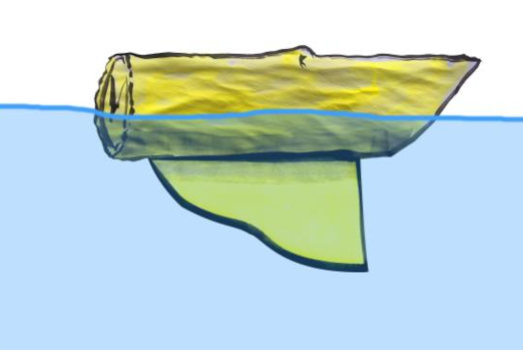
Ok, the idea...
We drop a small, bright, engineered, log into the river Aire at Centenary Bridge which leads on to The Calls in Leeds town centre. We follow the log's lead, along the path next to the river as it's carried by the flow. Perhaps we will the log on - a sort of group hope. Of course, there's the chance of the log snagging, sinking, or being caught in eddies. It can outstrip us or, more likely, make us move at a crawl pace. We might lose it altogether.
Hope. Let's see.
Meet 13:00 on Centenary Bridge, Leeds City Centre, UK
This event is free. Sorry, no children.
Any questions: Deirdre.Macleod@hotmail.co.uk
Sun Feb 23. 1pm. London. Frank K Molloy: Arthur Machen - Genesis of a Genius
This guided London walk examines the early work of Welsh urban-Gothic folk-horror writer Arthur Machen.
Machen (1863-1947) has been variously described as the 'Guru of Modern Psychogeography', 'Apostle of Wonder', 'High Priest of Nightmare', 'Godfather of Magic Realism' and 'Author of our Sacraments of Evil.' Stephen King went as far as to say that Machen was the writer of the "best horror novel in the English language."
This walk takes us through the districts of Bloomsbury & Clerkenwell which were Machen's stomping grounds in the late 1800s, and looks at how these streets became so inspirational his early life and works.
Meet outside the Dominion Theatre, next to Tottenham Court Road Station.
Two-hour walk through Bloomsbury and Clerkenwell. Finishing around 3pm at Farringdon Station.
The walk is free, but limited to 15 ticket holders who have booked through Eventbrite.
Sun Feb 23. 2.30pm. Edinburgh. Tamsin Grainger: Walking the edge of Granton Harbour
This is a Community Walking event at Granton Harbour celebrating the
Festival of Terminalia with history, art, nature, and community stories. We
will be walking around the edge of our home & questioning the need for hard
borders. Our harbour has arms which hold us safe and at the same time open
to the rest of the world. We hope that visitors and New Scots who come to
live here will feel welcome.
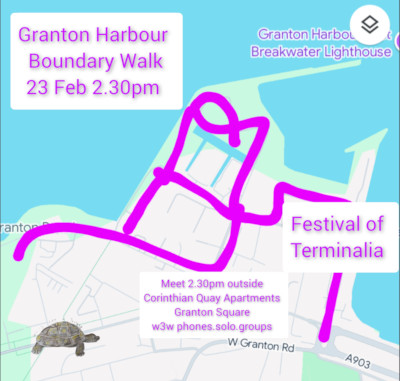
2.30-4pm, meeting at Granton Square outside the Corinthian Quay Apartments (EH5 1GL) on the corner of
Lochinvar Drive and Lower Granton Road
Buggies, dogs and wheelchair friendly. It is hoped that we can offer Polish
and Arabic translations if required. Remember! It can be cold on the
northern side of the harbour, so please wear warm clothes and sensible
shoes. Bring water or a hot drink. Chocolate provided!
More info and free tickets here https://buytickets.at/tamsinshiatsu/1581397 or on eventbrite
With Tamsin Grainger, Paths for All trained walk leader steeped in the
heritage and local history of the area. She has recently been awarded the
Marsato 24 international walking art award and her sound walk, The Wall, on
the Western Breakwater of Granton Harbour, was short-listed for a Sound
Walk September Award.
Sun Feb 23. 3pm. Cochranville, PA, USA. Street Road Artists Space: DOR (Dead on Road) Walk
We extend our journey into the phenomenon of roadkill on foot as we look to our near environs — the busy, deadly Route 41 next to Street Road Artists Space. As we walk, we will honor any encountered Near Dwellers who have succumbed to the force of wheel and road with acknowledgment, witness, and documentation.
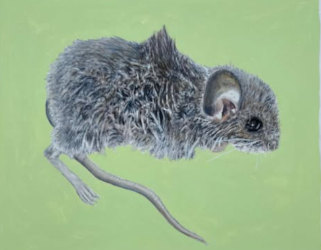
We welcome you to join us on 2 mile walks beginning at Street Road Artists Space.
All walks will begin at 3pm, rain or shine.
Due to the fact that we are walking along a heavily trafficked roadway, in person participation will be limited and preregistration is required.
Register via email info@streetroad.org
Walks will take place on the following Saturdays:
February 23, 2025
March 15, 2025
April 19, 2025
May 17, 2025
Not local? We invite you to walk a section of roadway of your choosing to document any DOR's you may encounter. Send contributions such as photos, written description, drawings or observations etc. to info@streetroad.org.
These and materials collected/created by participants at Street Road will be added to our website throughout the course of the exhibition.

The walks are in conjunction with Lou Florence's exhibition "Near Dwellers As Roadkill" at Street Road Artists Space in Cochranville, PA.
Other interesting solo and collaborative events
Feb 17th. Martin P Eccles. "Walking Dove Crag Island"

Read more on Martin's blog post: A walk on Dove Crag Island for Terminalia 2025
I will walk the boundary of an imaginary island, defined by walking and existing only in my mind. In the foothills of the Cheviot Hills I follow tracks, cross streams and walk ancient woodland, marking out the 10 miles of shoreline of the island. Terminalia contributes one of the monthly walks that will come to define the island and its shores.
For more, visit Martin's blog
Feb 17-24. Picton, Prince Edward County, Ontario, Canada. WIAProjects: Collaborative performances: A "Royal" Coffee
On the Saturday 22nd they set out and walked in the deep snow and cold to chat together in front of a lovely warm fire.



(These are images of Patterson & Wilkins from the two-hour coffee chat at The Royal Hotel which followed the walk at Seedy Saturday Picton, a community event to learn and share knowledge about seed, buy seeds from local heritage seed vendors and market gardeners, and celebrate the coming spring!)
A desire for inclusion, understanding, and action (however seemingly insignificant) - especially given the recent political shifts here in North America - sparks this Terminalia "event".

Candace Wilkins (Picton) and Pam Patterson (Toronto) have recently been enacting a tradition-of-hope. We will repeat this for Terminalia 2025 with heightened anticipation and awareness. Each will walk from the town parking lot, or a thrift shop, the Giant Tiger, the bookstore, the grocery store, through (in Februrary) snowy streets to sit together on the large grey welcoming couch in front of the fire at the Royal Hotel in Picton, Ontario, Canada.
There is an expectation for both of us of hope... hope for a moment where we will be joyfully together, supported in who we are as individuals and in our potentials as social activists, colleagues and friends. We hope that we will engage and be potentially fulfilled in our ideas, concerns, and study. We anticipate good coffee and a conversation that will energize possibilities for more inclusive creative spaces and places for us and for others!
This is about making space and taking up space to celebrate one another through struggle with meaningful connection, to create moments for memory and happiness. Walking outdoors and connecting to our community and those we see when we walk to the Royal and after is a regenerative practice that can have a ripple effect that sparks spontaneous conversations and experiences that nurture our and others needs.
Email: info@wiaprojects.com
Ontario universities “Study Week” Feb 17-24 , 2025.
Royal Hotel, Picton, Prince Edward County, Ontario
Read more about WIAProjects
Sun Feb 23. Patrick Ford: Solo Performance: Roundhay Walk
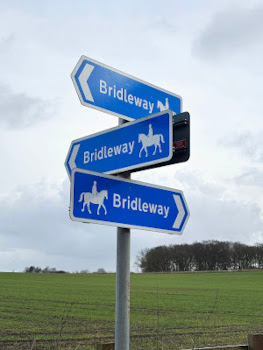
Apart from a couple of short periods of fairly light rain, the weather was great for walking and by the time we had reached Gipton Wood, the sun was shining down through the trees. Now, all thoughts turn to Terminalia 2026, and potential areas to explore.

You can read much more and see the whole route and photos at his blog: https://33temple.blogspot.com/2025/03/roundhay-walk-terminalia-festival-2025.html
The current extent of Roundhay Park is the remaining section of an old hunting park, originally owned by the de Lacys, Lords of Bowland. Eventually sold to Thomas Nicholson and Samuel Elam, the northern part of the estate was taken by Nicholson and passed down through the family until being put up for sale in 1871. The rest of the old estate was sold off in sections for building development.
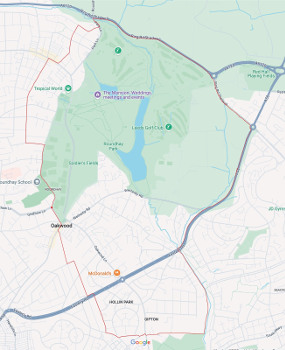
It is Patrick's plan to walk close to the original boundary of the estate, making slight detours where necessary to avoid private land and other contemporary obstacles. As a guide, Patrick is using the 1847 ordnance survey six-inch map, which seemed a fair approximation of the area and a convenient line to follow.
Patrick transferred the walking route onto a google map for easy reference. On Sunday 23rd February, this route will be followed, walking clockwise from the end of Gledhow Lane (marked as a red dot on the map).
You can read more about this on his blog.
